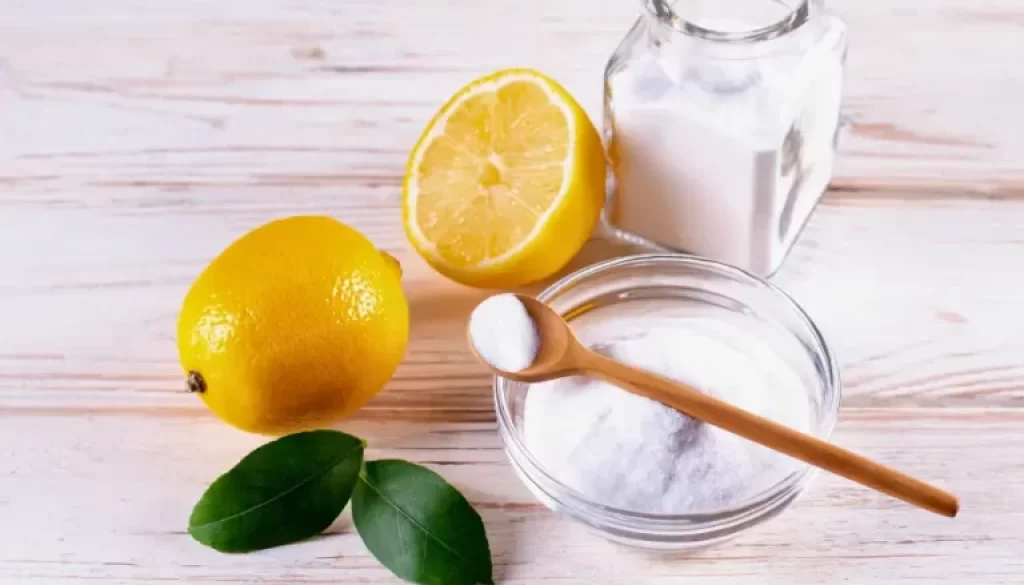What Plants and All-Natural Ingredients Can Be Used as Home and Room Deodorizers and Air Fresheners?
Things to know
Air-Purifying Houseplants: Nature’s Own Air Fresheners. 1
Essential Oils: Natural and Pleasantly Scented Deodorizers. 2
Baking Soda and Vinegar: Classic Household Deodorizers. 2
Fresh Citrus: Lively Scent and Powerful Freshening. 2
Herbs and Flowers: Rustic Touch with Aromatherapy Benefits. 3
Here are the recommended materials for creating natural air purifiers and deodorizers in your home. For your convenience, some of these links may be affiliate links, which means if you make a purchase, we may earn a small commission at no extra cost to you.
Materials You’ll Need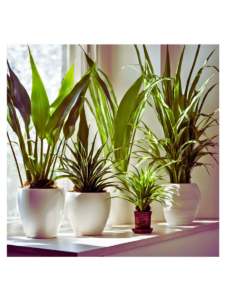
- Houseplants: Aloe Vera, spider plant, snake plant, peace lily, bamboo palm
- Essential Oils: Lavender, eucalyptus, tea tree, lemon, peppermint
- Absorbing Agents: Baking soda, activated charcoal, white vinegar
- Fresh Citrus: Lemons, oranges, limes
- Herbs and Flowers: Rosemary, lavender, eucalyptus branches
- Natural Containers: Glass jars, small cloth bags, decorative bowls
Keeping your home smelling fresh and clean doesn’t have to mean using synthetic air fresheners and deodorizers. Instead, you can choose plants and natural ingredients that not only neutralize bad odors but also add health benefits to your living space. This guide covers top plants and easy-to-use natural products that effectively cleanse the air, remove unwanted smells, and leave a pleasant aroma throughout your home.
Air-Purifying Houseplants: Nature’s Own Air Fresheners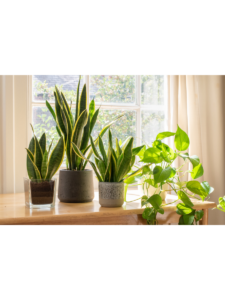
Houseplants do more than add beauty—they help improve indoor air quality by filtering out toxins and emitting oxygen. Here are some excellent choices:
- Aloe Vera: Known for its soothing gel, aloe vera is also a natural air purifier, removing formaldehyde and benzene from the air. It’s easy to care for and releases oxygen at night, making it ideal for bedrooms.
- Spider Plant: This low-maintenance plant is excellent for absorbing carbon monoxide, formaldehyde, and xylene. Its long, green leaves add style to any room.
- Snake Plant (Mother-in-Law’s Tongue): Often listed among the best air-purifying plants, the snake plant is low-maintenance and highly effective in eliminating household toxins.
- Peace Lily: Peace lilies remove mold spores in the air, so they’re perfect for bathrooms. Their lush green leaves and white flowers add a touch of elegance.
- Bamboo Palm: This palm doesn’t just remove pollutants; it also adds humidity to dry indoor air, making it particularly beneficial in winter.
Essential Oils: Natural and Pleasantly Scented Deodorizers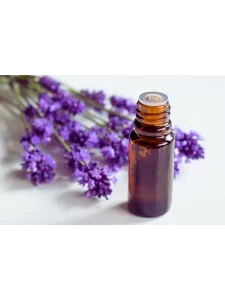
Essential oils have been used for centuries to freshen up spaces and create a calming atmosphere. Here are some of the most effective ones for deodorizing and purifying:
- Lavender Oil: Known for its relaxing properties, lavender oil has a light, floral scent that combats odors and promotes restful sleep. Use it in diffusers, or spray a diluted mix around your home.
- Lemon Oil: Lemon essential oil has antibacterial and antiviral properties, making it excellent for cleansing and freshening up kitchen and bathroom areas.
- Eucalyptus Oil: This oil is ideal for eliminating smoke odors and helps open up respiratory pathways—great for rooms with less ventilation.
- Tea Tree Oil: Known for its antimicrobial qualities, tea tree oil is effective against mildew and mold. It’s ideal for damp spaces like laundry rooms and bathrooms.
- Peppermint Oil: Known for its refreshing scent, peppermint oil also deters pests like ants and spiders.
Baking Soda and Vinegar: Classic Household Deodorizers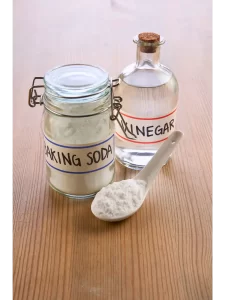
Baking soda and vinegar are classic odor-neutralizing agents that work wonders without harsh chemicals:
- Baking Soda: A natural deodorizer, baking soda absorbs odors without masking them. Place open containers in the fridge, closets, or near pet areas to keep them fresh.
- White Vinegar: Vinegar neutralizes strong odors from smoke and cooking. Use it to clean surfaces or simmer on the stove with water to eliminate odors in the kitchen.
Fresh Citrus: Lively Scent and Powerful Freshening
Citrus fruits like lemons, oranges, and limes are great natural deodorizers. Here’s how to use them:
- Lemon Peels in Vinegar: Soak lemon peels in white vinegar for a few days, then use it as a natural cleaner that deodorizes and disinfects.
- Citrus Simmer Pot: Simmer orange and lemon slices with cinnamon sticks and cloves to create a warm, inviting fragrance in your kitchen and main rooms.
- Citrus Essential Oils: Use in a diffuser for an uplifting, clean scent.
Herbs and Flowers: Rustic Touch with Aromatherapy Benefits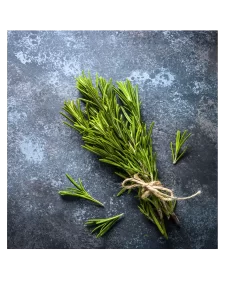
Adding fresh or dried herbs can bring a subtle, natural scent to your home:
- Lavender Bundles: Hang dried lavender in closets or place sachets in drawers to deter moths and keep clothes smelling fresh.
- Rosemary Sprigs: Place fresh rosemary in small bowls in the bathroom or kitchen. Its earthy scent adds freshness and a clean feel.
- Eucalyptus Branches: Hang eucalyptus in the shower; the steam releases its refreshing aroma, which can help with congestion and breathing issues.
FAQs
What is the best plant to remove smoke odors? The snake plant and bamboo palm are particularly effective at removing toxins and smoke from the air, making them ideal for areas affected by smoke.
Can I combine different essential oils for a custom scent? Yes, you can blend oils like lavender and lemon for a relaxing and uplifting aroma. Just ensure they’re safe for diffusion and test the blend before widespread use.
Is it safe to use essential oils around pets? Some essential oils, like tea tree and peppermint, can be harmful to pets if ingested or inhaled in large quantities. Always consult with a veterinarian before using essential oils around pets.
How often should I change baking soda in odor-absorbing containers? Baking soda works effectively for up to a month; after that, replace it to maintain its odor-neutralizing power.
People Also Asked
- What plants absorb toxins in the home? Houseplants like peace lilies, snake plants, and spider plants are highly effective at absorbing toxins such as formaldehyde, benzene, and xylene.
- What essential oils can I use to eliminate bathroom odors? Eucalyptus, tea tree, and lavender oils are particularly effective for bathrooms, as they combat bacteria and provide a fresh scent.
- Are natural air fresheners as effective as commercial ones? Natural air fresheners are safer and can be highly effective when used consistently. They won’t cover odors as strongly as synthetic sprays, but they neutralize odors without adding harmful chemicals.
People Also Read:
- How to Make Your Own Beeswax Food Wraps: A Simple, Sustainable DIY Guide
- DIY Natural Cleaning Products for a Healthier Home: Your Ultimate Guide

